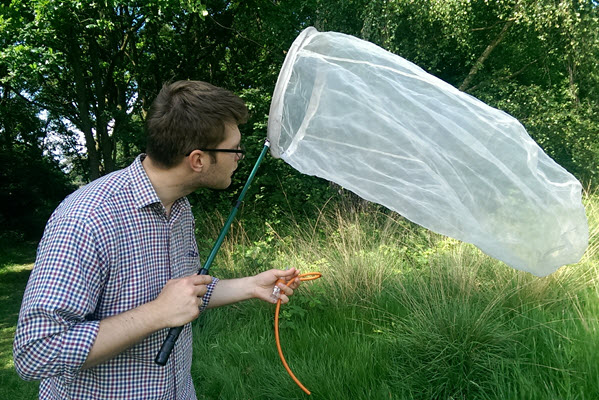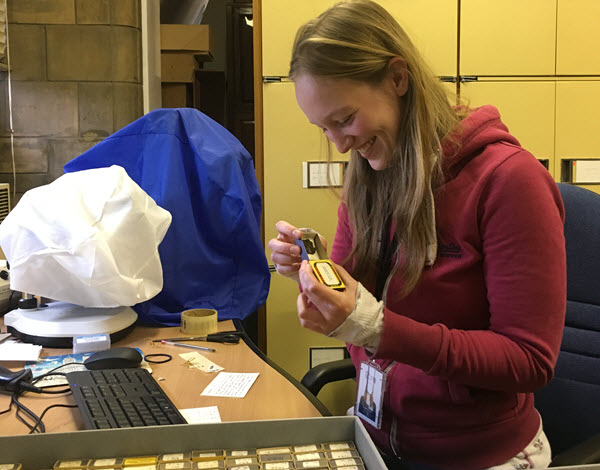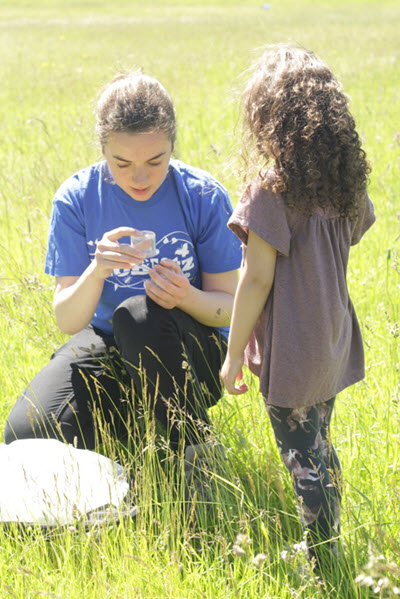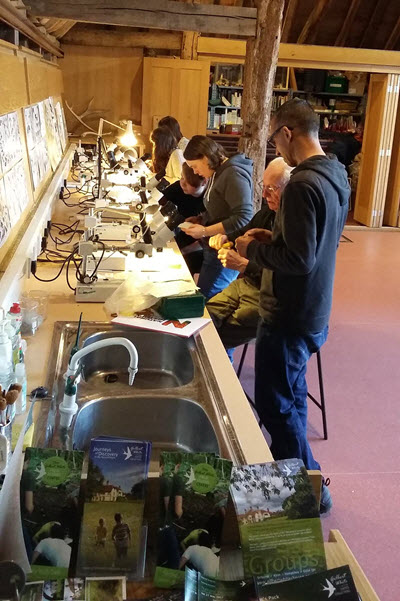The Identification Trainers for the Future (IDTFF) project was developed as a work based training programme for individuals that are passionate about developing a career within the UK biodiversity, ecology and conservation sectors. The project was generously funded by HLF (Heritage lottery Fund) as part of their ‘Skills for the future’ programme and led by the Natural History Musuem (NHM), in formal partnership with the Field Studies Council (FSC) and the National Biodiversity Network (NBN).
There has never been a greater need to document, monitor and understand changes in the UK’s wildlife, yet the number of people with the skills to survey and accurately identify species, handle and preserve reference specimens, and share their knowledge with others is declining. Wildlife identification and recording skills have been identified as a critical and growing skills gap in the UK Natural Heritage Sector; The IDTFF partnership project was developed in order to help address this skills gap.
The delivery phase of the IDTFF project ran from March 2015, with the Musuem sadly saying goodbye to the final cohort of trainees in March 2018.
The project successfully provided 15 individuals with a subsidised work-based training placement, each of which ran for 12 months in duration. Placements were phased across three years, with a cohort of five trainees taken on each year.
For the duration of their placements, trainees were based in the NHM’s Angela Marmont Centre for UK Biodiversity (AMC); the AMC is a hub for UK natural history study, engagement and outreach, including through the NHM’s citizen science programme. Although based in the AMC, throughout the 12 month programme trainees carried out placements elsewhere within the NHM, including with curation teams and the learning engagement team. Trainees also carried out placements with the FSC at various field centres across the country.
Over the course of the 12 month programme each trainee received training in 4 main areas:
1) Species identification and biological recording skills

2) Collections care and curatorial skills

3) Public engagement and communication skills

4) Skills Transfer and training delivery

For specific information regarding the trainee’s time on these placements please see the NBN ID Trainers Blog Archive. These blogs document all three cohorts time throughout the project and provide first-hand accounts of their experiences.
Alongside their placements, throughout the project, trainees also developed a wide range of freely available UK biodiversity identification resources aimed to support wildlife identification and recording skills. Links to these resources are available on the ID Trainers Website and cover a diverse range of topics from a guide to common families of Coleoptera in the British Isles to a key to a multi-access key to the common families of British grasses. We will be updating the website shortly with new resources created by cohorts two and three; watch this space for exciting additions including a Multi-access Key to UK Ephemeroptera and a documentary on temperate rainforests in the UK.
The IDTFF project has been hugely successful; all fifteen trainees completed the programme and have either gone on to employment in the Natural History Sector or are on the path to further education. Trainees have gone on to work for notable organisations including: the RSPB, The Wildlife Trusts, Plantlife, Earthwatch Institute, Natural England and a number of trainees have taken on positions back at the NHM (myself included!).
On June 1st 2018 to formally bring the IDTFF project to a close, the NHM will be holding a symposium which will discuss highlights and outcomes of the ID Trainers programme, the importance of inspiring future generations in identification and recording, and the future of training within the Angela Marmont Centre and beyond. We have a great selection of speakers confirmed for the day and it’s looking to be a fantastic event.
A further legacy of the project is that Steph West, previous Project Manager of the ID Trainers programme, has been employed on a permanent basis in the AMC as the Biodiversity Training Manager; in this new role, Steph will be using the successes and lessons learnt from the IDTFF project to develop further training opportunities in the NHM. So, watch this space for exciting new training opportunities centred on UK Biodiversity; these will be advertised on the AMC website and on the NHM UK Biodiversity Twitter feed @NHM_ID.
So that’s all from the IDTTF project for now, but do keep an eye out for updated resources and future training opportunities. I can honestly say it’s been a complete pleasure being part of this project, firstly as a trainee and now as a project officer. Although it is sad to see the end of this project, I am excited for the future of training opportunities in the AMC and with Steph at the helm I have no doubt it is sure to be a huge success!
One final thank you must be given to the NBN, FSC and HLF for their continued support, without which this project could not have been such a success!
Written by Nicola Lowndes, Natural History Museum and previous ID Trainer for the Future
